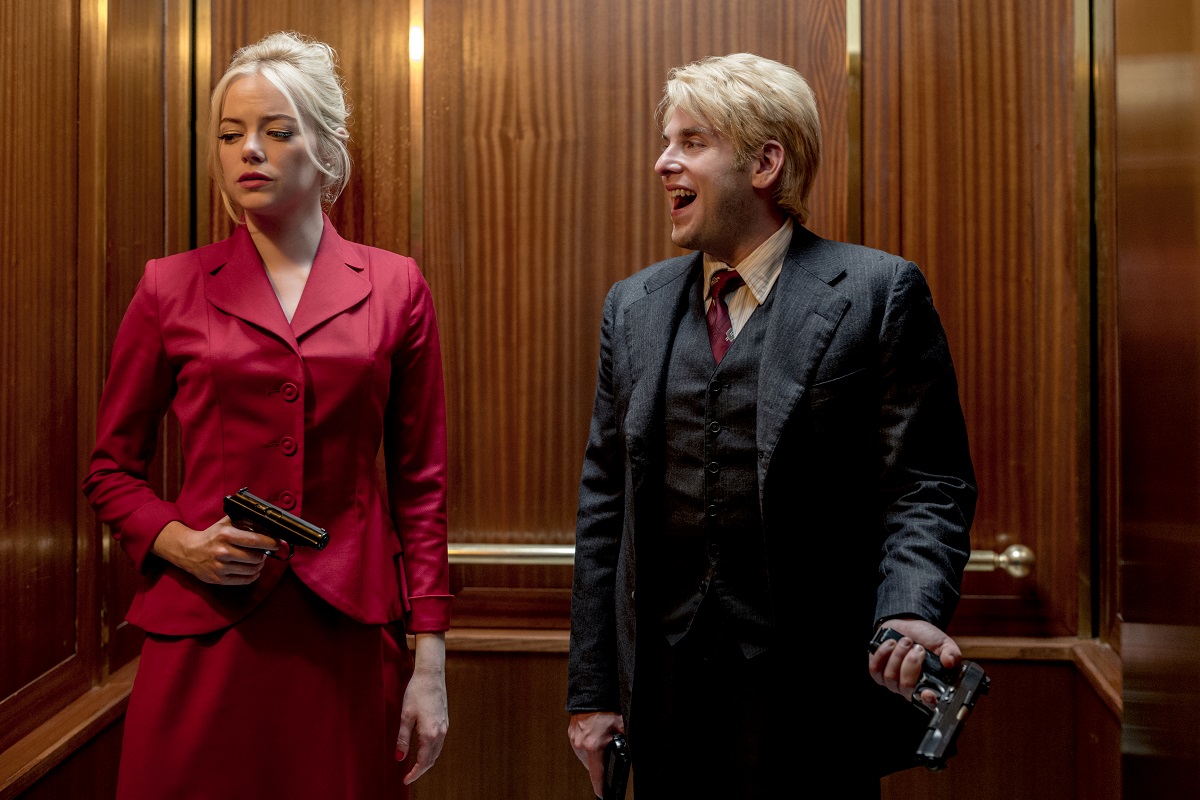Netflix’s “Maniac” is a fascinating, brilliant show, and one of my favorites of 2018. We should expect no less from the creative voices behind “The Leftovers” and “True Detective,” but this show still found a way to surprise me episode after episode. In one of the most crowded months in television history, not enough people are talking about this daring, strange, powerful piece of work, a show that’s so delightfully odd that it could turn off viewers looking for something more traditional but that I can guarantee you will find an equally large group of loyal devotees. It’s a show with echoes of “Black Mirror,” “Legion,” and, most of all, the “International Assassin” episode of HBO’s masterful “The Leftovers,” one of the best programs of the ‘10s. Like that show, “Maniac” plays with genre and dramatic expectations to gain insight into the human condition in ways that other programs can’t touch.

“Hypothesis: All souls are on a quest to connect. Corollary: Our minds have no awareness of this quest.” These lines from the opening episode of “Maniac” should prepare you for where this increasingly bizarre show is going to head thematically. To call it a “mind fuck” would be an understatement. The quick logline could be: “Two people deal with their issues during a pharmaceutical drug test.” Sure, I guess that’s part of it. But there’s so much else.
The pair of human guinea pigs in this case are Annie Landsberg (Emma Stone) and Owen Milgram (Jonah Hill), volunteers for a test that attempts to do what therapy so often cannot—pull apart the issues that define and confine them. And they have some issues. Annie has been in a grief spiral since becoming estranged from her sister (Julia Garner, the always-welcome MVP of “Ozark”) and Owen is the baby child in a family of upper-class monsters, including a brother played by Billy Magnussen and a father played by Gabriel Byrne. To be blunt, Owen has been dismissed by his family other than when they can use him. There’s a fantastic visual in the first episode in which a painting of the entire family except Owen is revealed only to pan over to a smaller painting of the missing brother. Owen is desperately looking for connection. Meanwhile, Annie has a job as a ‘Friend Proxy,’ which is what it sounds like—people can pay her to be their friend for the day—but mostly feeds a growing pill addition. She’s just doing the test to get more drugs. And she doesn’t believe Owen’s insistence that they have some sort of connection before it even begins. She starts to change her mind.
After a series of introductory episodes, “Maniac” leaps the rails of traditional narrative as we jump into the shared dreams of Owen and Annie—a part of the treatment run by the unforgettable Dr. Manterlay (Justin Theroux)—a structure that allows director Cary Joji Fukunaga and the writing team to run rampant in the human id. Each concise episode (they’re all under 45 minutes!), especially for Netflix, allows the team to explore the issues at the core of Annie and Owen’s psychological problems with different characters, settings, and tones. In one episode, Owen and Annie are an ‘80s Long Island couple trying to steal a lemur with a storytelling style reminiscent of the Coen brothers. In the next, they’re attending a séance in the ‘40s, replicating the playful dialogue and character beats of a classic mystery film. And yet each of these “short films within a show” reflect themes of the real Owen and Annie, whether they be family problems, low self-worth, distrust, or a growing sense that maybe these two were meant for each other for some reason. Even Sally Field appears as, well, you’ll have to wait and see.

The production design is incredible here as well. The world of “Maniac” is a fascinating, Gondry-esque vision of the future that is both futuristic and delightfully retro. The hub for the test subjects looks like the deck of the Nostromo (“Alien”) and computer technology has a “future the way filmmakers saw it in the ‘80s” aesthetic—think Cronenberg and Gilliam. This is a world in which one can play chess with a tough-talking, purple, robot koala in the park or make use of, well, something we won’t get into called Sucktube. And yet the human condition remains the same. The longing for connection. The need for emotional stability. The sense that life has passed you by. None of that will change with new drugs or breakthrough technology, and “Maniac” understands the inconsistency of things like depression and mental illness in ways I haven’t really seen since “Legion,” another show that seeks to mess with your mind in order to unlock something truthful about it.
Stone and Hill clearly relish the chance to genre-jump within one incredibly well-made show, and Theroux is wonderfully fearless in his oddity, but this show belongs to the writers. The scripts here have echoes of David Lynch, Charlie Kaufman, Jose Saramago, and Franz Kafka but it can also be remarkably funny in ways that other programs like this aren’t. It deftly walks that fine line between quirky and annoying. Although this is very much a “your mileage may vary” situation. I could see “Maniac” being far too self-consciously strange for some people and I’d have trouble arguing that point. I could also see it becoming the new favorite show on TV for others. As someone recently subjected to the numbing sameness of the Fall TV 2018 offerings from the broadcast networks, I needed “Maniac” in ways I didn’t even understand before watching it. You could say it was the perfect drug.












